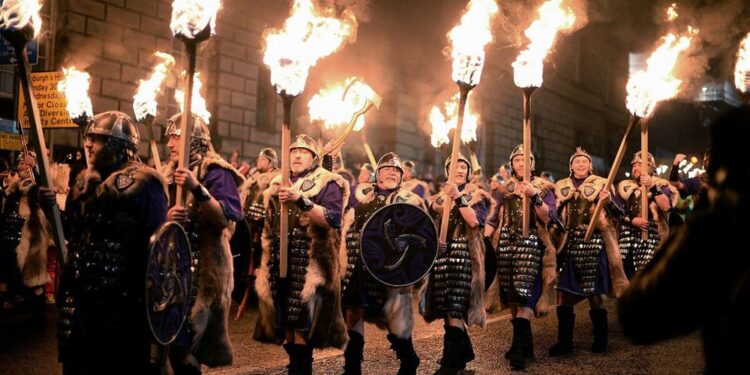
2nd January (Hogmanay)
Hogmanay, the Scottish term for New Year’s Eve, marks a significant celebration in Scotland. Unlike typical global New Year festivities, Hogmanay incorporates unique Scottish traditions. It’s a period of festivity that extends beyond a single night and is celebrated with various traditional customs.
Historical Background
The origins of Hogmanay and its name are not completely understood. It is believed to have connections to Norse and Gaelic traditions. It became more prominent after the Protestant Reformation in Scotland, which led to the suppression of Christmas festivities. Consequently, Hogmanay emerged as the main celebration during the winter season.
Traditions and Celebrations
Festivities generally commence on December 31st and can extend over several days, with January 2nd often being a public holiday in Scotland. Edinburgh, the capital of Scotland, hosts one of the most renowned Hogmanay celebrations, attracting visitors from all over the world.
These festivities not only serve as a celebration within Scotland but also as an event that brings Scottish culture to an international audience. One of the central traditions of Hogmanay is ‘first-footing.’ This practice involves the first person to enter a home after midnight bringing gifts, which traditionally include coal, shortbread, and whisky.
These gifts are symbols of good fortune for the upcoming year. The physical characteristics of the first-footer are also considered significant, with a preference for a tall, dark-haired individual.
The ‘Loony Dook’ is another tradition where individuals participate in a swim in the cold waters of the Firth of Forth on New Year’s Day, often for charitable causes. This event symbolizes a fresh start for the new year.
In Edinburgh, Hogmanay is marked by a large street party, which includes concerts, traditional dances, and a fireworks display at midnight. Additionally, the city hosts a torchlight procession, creating a visually striking scene.
In other regions of Scotland, unique local traditions are observed. For instance, Stonehaven in Aberdeenshire is known for its fireball swinging ceremony, an event where participants swing fire-lit balls on chains through the streets, a practice thought to purify the town by driving away evil spirits.








